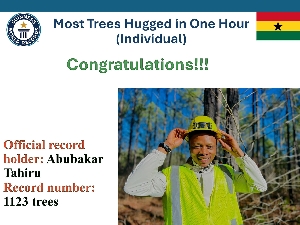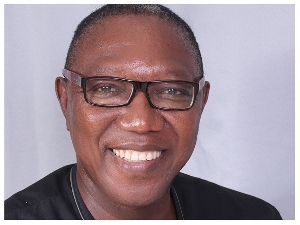The United Nations Framework Convention on Climate Change (UNFCCC) defines it as a change of climate that is attributed directly or indirectly to human activity, altering the composition of the global atmosphere.
Recent Developments
Recent developments around the globe with Ghana, not an exception point to the fact that there are issues with the environment due to problems from Climate Change that need to be corrected.
Hell on earth looks a lot like Australia right now. The fires are so immense, they are generating their own lightning-and they have killed more than a “billion animals”.
A billion! It’s a wildlife holocaust!! Thousands of koalas are roasted alive in the trees, while rare flying foxes are falling dead from the sky.
Even worse, this nightmare could be a glimpse of our whole planet’s future if we don’t urgently tackle the climate change crisis that caused it.
Causes
Watching at home from international networks as the country burns, Australia’s leaders are denying climate change and trying to derail global action to reduce carbon pollution.
Climate change campaigners and experts cannot sit unconcern and let them win. So we also must bring all of our movement’s campaigning magic to face down blockers in Australia and all over the world ahead of crucial global climate talks later this year.
Can you imagine how brave you must be to run into the flames to save terrified animals? Across Australia, heroic wildlife rescuers are working against the clock to save animals from this catastrophe.
But to really make their heroism count, we must spark change in Australia-and that means taking on the powerful climate deniers with the government in their grip.
Right now, they’re flooding Australia with fake news to play down the link to climate change, but as deadly fires blaze through homes, businesses and schools, killing dozens and wrecking people’s lives, Australia’s leaders are under pressure like never before.
Avaaz, a global web movement, is one of the few movements positioned to power recovery plans and wildlife rescue on the ground, while launching fearless people-powered campaigns and investigations all over the world to face down the climate deniers.
This is a moment for a global wakeup call and a tipping point toward building the healthier, more sustainable world we all want.
Warnings
The Inter-governmental Panel on Climate Change (IPCC) has warned that a two degree Celsius increase in global average temperatures will be a tipping point for life as we know it, triggering massive sea level rise, ecosystem shifts and a greater frequency of extreme weather around the globe.
The IPCC is an intergovernmental body of the United Nations (UN) that is dedicated to providing the world with objective, scientific information relevant to understanding the scientific basis of the risk of human-induced climate change, its natural, political and economic impacts.
Four years after the landmark Paris Agreement, almost every nation has agreed to limit global temperature rise to “well below 2 degrees Celsius,” yet many regions of the world have already reached or surpassed this amount of warming.
In Ghana
Clearly in Ghana, these extreme temperature increases are creating complicated interactions for water supply, food security, ecosystems, public health and the economy.
Erratic rains and unpredictable weather patterns married with drying up of major water and river sources require concerted and broader action from civil society actors and climate campaigners to save the nation.
Climate change in Ghana is projected to affect its vital water resources, energy supplies, crop production and food security.
Human activity includes; pollution arising from industrial activities, farming, environmental degradation and others such as volcanic eruptions to mention a few.
But, annual bush and wildfires pose serious threat to Ghana’s climate condition.
In addition, certain human activities have been identified as primary causes of the on-going climate change, often referred to as the global warming, a condition that negatively affects climatic conditions.
Societal effects of climate change are already felt, as evidenced in the health, livelihoods, food productivity and water availability.
A sharp change in the rainfall pattern, drying up of rivers and receding of water bodies are some of the effects of climate change in cocoa growing communities in the country.
Rivers such as the Tano, Bia, Tain, Goa, Pra and Ayensu among others, are gradually receding due to uncontrolled human activities such as bad farming practices, illegal logging, and illegal surface and alluvial mining.
With its five northern regions the most vulnerable, Ghana is already experiencing increased extreme weather conditions with higher incidence and more prolonged periods of flooding and droughts.
High temperatures are expected to increase further, and rainfall patterns will be less predictable as more intense rainfall is expected to increase erosion, while less total rainfall may decrease the water flow.
The country’s vulnerability is largely due to dependence on the production of crops that are sensitive to climate change, including; cassava and cocoa, and by a lack of agricultural diversification.
Currently, the nation is experiencing the drastic effect of climate change with her Greenhouse gas emissions more than 50 per cent higher than in the 1990s.
Ten years to go, global warming is causing long lasting changes to the nation’s climate system, which threatens irreversible consequences, but there are no indicators that Ghana would be able to achieve the UN Sustainable Development Goal (SDGs) 13 – Climate action.
The nation requires broader action to integrate disaster risk measures, sustainable natural resource management and human security into national development strategies.
It is still possible for the nation to achieve the global goal 13, with strong political will and increased investment in climate adaptation and realistic climate change mitigation measures.













